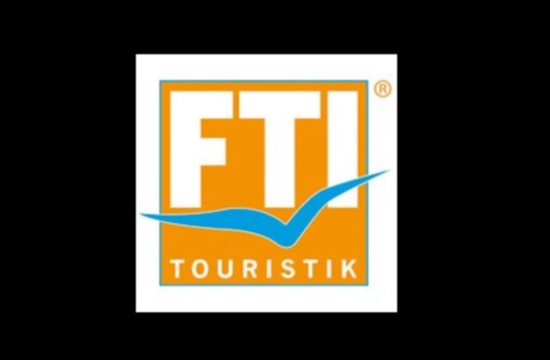Concerns Rise Over FTI Tour Operator’s Stability Amid Financial Woes
In recent news, the German Association of Independent Travel Agencies (VUSR) has raised significant concerns regarding the sustainability of one of Germany’s largest tour operators, FTI. The criticism specifically points to the company’s ongoing financial difficulties and questions its reliability as a partner for travel agencies. This revelation came to light in a report published by Tornos News on Friday.
FTI’s Impact on the Travel Industry
George Pelekanakis, president of the Hellenic Association of Hotel Directors, spoke in an interview with the local newspaper "Patris," emphasizing FTI’s crucial role in the tourism sector, particularly in Crete. “FTI brings thousands of tourists to Crete and works with numerous hotels. However, it also has debts amounting to millions owed to local entrepreneurs,” said Pelekanakis, adding that stakeholders are currently in a waiting period to see the company’s next move.
Extension of Travel Season Announced
In a bid to bolster its operations, FTI announced plans to extend its travel season in Crete and Rhodes during the spring and November months. The tour operator has made approximately 150 hotels available during the off-peak season in both destinations, along with corresponding flight connections. This initiative aims to attract more tourists and alleviate some financial strain.
Search for Investors
On September 25, 2023, Tornos News reported that FTI is actively searching for investors to secure additional capital needed for the company’s digital transition. The move reflects a broader strategy to stabilize its financial position following the pandemic-induced challenges. Discussions with potential investors are reportedly underway.
Backed by Notable Investors
The company is primarily owned by the Egyptian Sawiris family, who have significant stakes in FTI. During the pandemic, FTI received substantial state aid, with the total support amounting to €242.1 million from Germany’s Economic Stabilization Fund (WSF). This financial lifeline was critical in keeping the operation afloat during unprecedented times.
Debts and Loan Structures
The financial landscape for FTI shows a complex structure of loans, including a €235 million low-secured loan and an additional €118 million. However, reports indicate that, as of April 2022, only €99.3 million of the latter had been utilized, with the remaining €18.7 million left unclaimed. To date, €40.4 million have been repaid on the first low-secured loan as part of FTI’s efforts to manage its debt.
Possible Merger on the Horizon
Earlier this year, interest in a potential merger between DER Touristik and FTI surfaced, but details surrounding the negotiations remain undisclosed. Such a merger could offer a crucial lifeline for FTI, providing it a strategic alliance to weather the ongoing storm.
Positive Trends in Winter Bookings
Despite the turbulence, FTI reports a favorable trend in their winter bookings, attributing this positive trajectory to the robust performance of the German travel market. For the current financial year, expected to end in late October, the company anticipates total sales to reach €4.1 billion, a promising figure even amid financial scrutiny.
Booking Surge for 2024/25 Winter Season
Interestingly, preliminary metrics indicate a 26% increase in bookings for the winter season of 2024-2025 compared to the previous year, despite rising prices. This surge may demonstrate travelers’ resilience and eagerness to return to holidaying, presenting an opportunity that FTI could leverage to rejuvenate its financial standing.
Local Economic Implications
The implications of FTI’s financial difficulties extend beyond the company itself, impacting local economies reliant on tourism. In regions like Crete, where substantial investment is needed, the local businesses are keeping a close watch on FTI’s next steps, as the agency plays a pivotal role in sustaining tourism levels.
Industry Reactions
Responses from industry leaders reveal a mixture of hope and concern. While many acknowledge FTI’s previous contributions to the tourism sector, the hesitation surrounding its debt situation raises questions about the future viability of such critical partnerships.
The Future of FTI
As FTI navigates these turbulent waters, the coming months will be crucial. Stakeholders are urging for transparency and action to rectify outstanding debts while ensuring that the operational capacity remains intact to fulfill future bookings and commitments.
Global Travel Trends
Meanwhile, the evolving global travel landscape continues to impact FTI. Emerging trends suggest growing interest in less traditional travel destinations, which may influence strategies toward diversification in offerings and partnerships.
Technological Advances
One area highlighted in the company’s strategic focus is the digital transition they aim to enhance with new investments. Adopting cutting-edge technology could improve operational efficiency and customer engagement, essential in an increasingly competitive industry.
The Ripple Effect of History
Travel industry history often reveals that recovery can be a long and arduous process. Responding to both criticism and market pressure will be essential for FTI if they wish to reclaim their standing among top tour operators.
Stakeholders Watch Closely
With numerous stakeholders affected, including hoteliers, travel agencies, and investors, the situation remains dynamic. Observing FTI’s next moves will be crucial as the ramifications of their financial decisions resonate throughout the tourism ecosystem.
Conclusion
In conclusion, while FTI continues to face substantial challenges, both in terms of financial sustainability and market confidence, the response from the travel community and their adaptation strategies could shape their future considerably. As stakeholders remain vigilant, the outcome of FTI’s initiatives in securing investments and stabilizing operations will be pivotal for the broader travel industry in Germany and beyond.






















